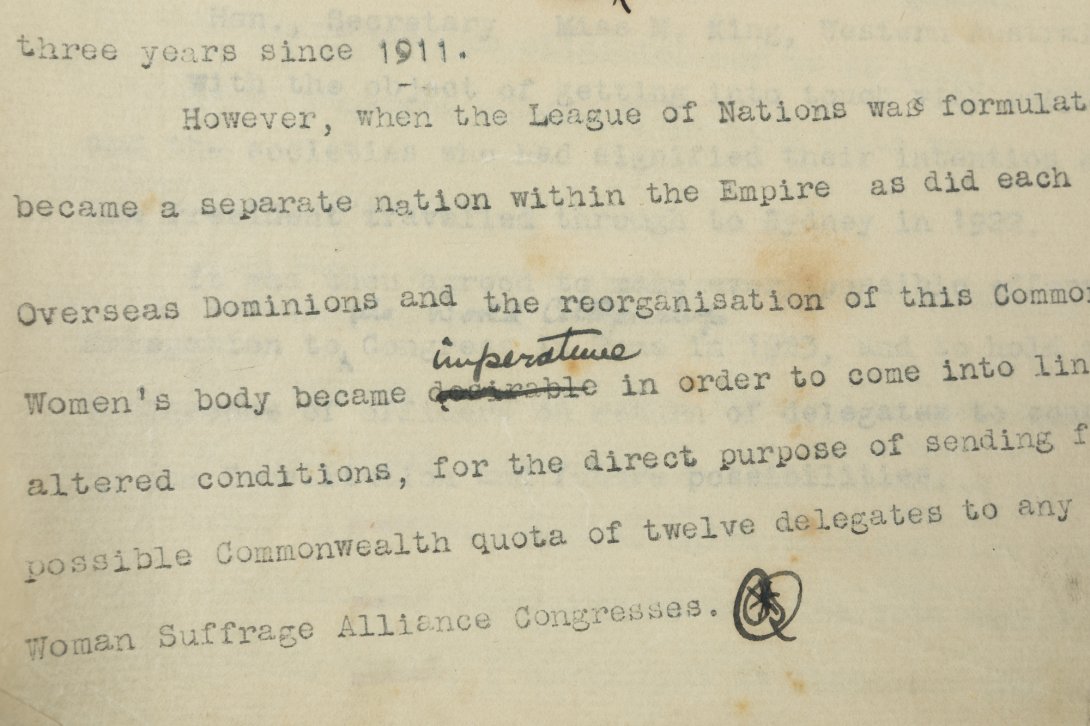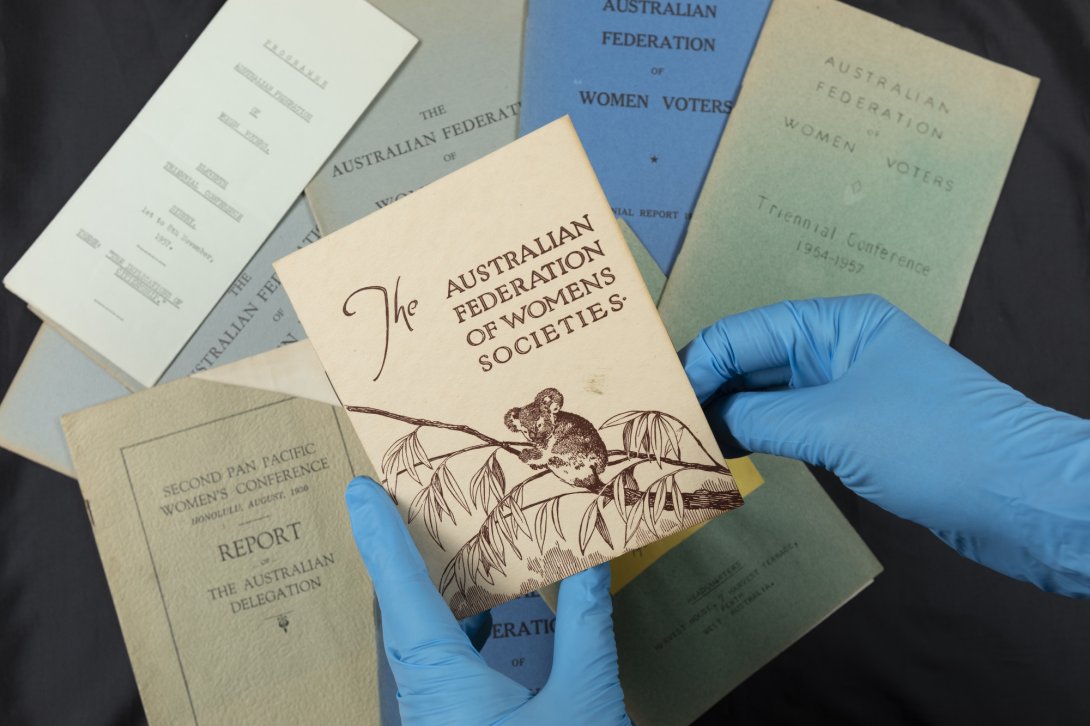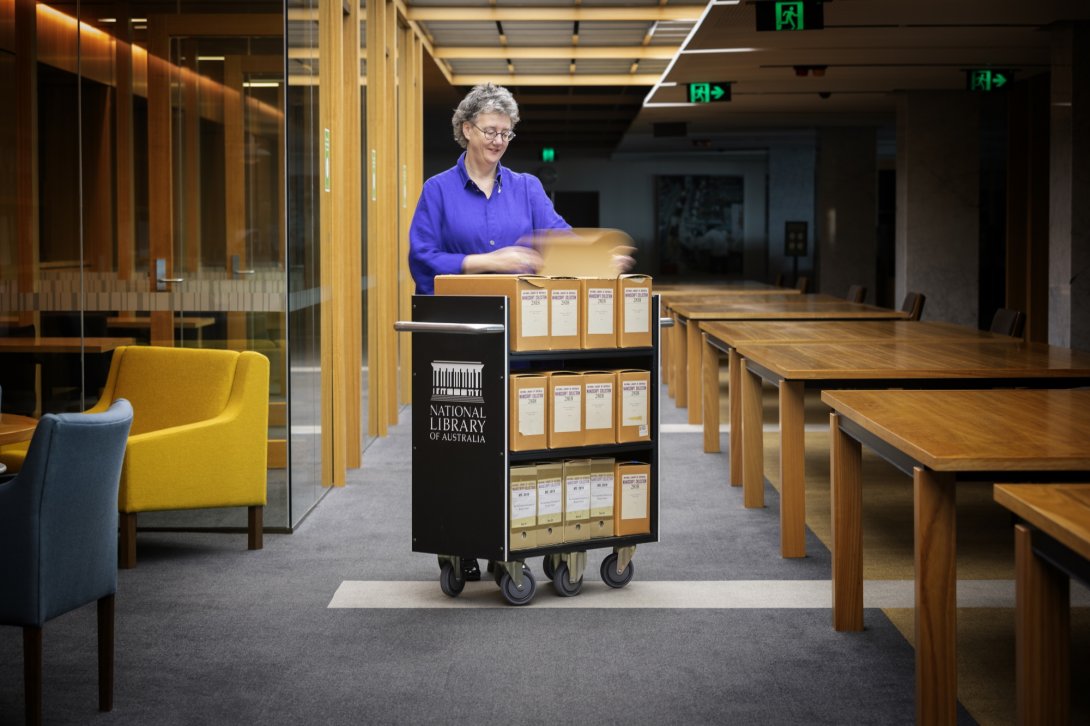Due to scheduled maintenance, the National Library’s online services will be unavailable between 8pm on Saturday 7 December and 11am on Sunday 8 December (AEDT). Find out more.
The papers of the Australian Federation of Women Voters (AFWV) show part of the long journey towards equality for women, and were the focus of the National Library’s 2021 appeal.
We are enormously grateful to the many hundreds of supporters who donated to our fundraising appeal to help digitise the papers of the AFWV. This appeal was our most successful ever, raising a record $209,000 to fund the digitisation of this collection and other Library priorities.

Who were the Australian Federation of Women Voters?
By the beginning of the 20th century, women had won the right to vote and to stand as candidates in national elections, but this was just the first step towards true equality.
Frustrated with the slow pace of change following the wins of suffragism, in 1921 the dynamic West Australian feminist Bessie Rischbieth convened a meeting of feminist groups that gave birth to the Australian Federation of Women Voters.
Australian women wanted a united, national and non-party voice to lobby governments at all levels, and to represent Australian women in the international arena of feminist activism. The AFWV became that voice.
Not happy with merely voting, the AFWV wanted to see women elected, to work for legislative change in areas that would improve the lives of women and their families, and to see women take on more leadership roles. They wanted to see women become equal.
Between the wars the AFWV was one of the strongest voices advocating for Australian women’s rights.
From the 1940s the AFWV pushed hard for a separate government structure to deal with the issues of women, particularly women’s employment. The female basic wage was first set at the 1949-1950 Basic Wage Enquiry – at 75 per cent of the male wage. Women were barred from remaining in the Commonwealth public service after marriage until 1966. There was much to fight for.

The Australian Federation of Women Voters Collection at the National Library
In 1970, the AFWV donated a significant portion of the federation’s records, dating back to 1924, to the National Library, including extensive series of correspondence, newspaper cuttings, reports and minutes.
The collection was later augmented by the papers of AFWV presidents from the 1950s through to the conclusion of the federation in the early 1980s, including those of Ruby Rich MBE, Estelle Collmann MBE, Irene Greenwood AM, Dorothy Adams and Lorelei Booker MBE.
This significant collection of papers provides deep insight into how actively engaged women collaborated and contributed to the causes of the day. The depth and variety of that activism spanned issues such as equal pay, status of women, women in the church, women in policing, children’s courts, marriage of minors, economic and educational rights, Indigenous welfare ;and nuclear testing.
While the collection includes the words and voices of well-known figures such as Ruby Rich, Jessie Street and Bessie Rischbieth, it also highlights the work of dozens of pioneering women whose work was not well known, then or now.

Sharing our collections online
The Library’s vision for the future is to transform public access to Australian culture and history by sharing our unique collections online. Over 30 million visitors use our online platform Trove each year.
Thanks to the overwhelmingly generous response to this appeal, we look forward to bringing the AFWV collection online for everyone in early 2022. In doing so, we can ensure that the names of these women who championed equality will inform and inspire future generations.
For more information about supporting the National Library, please visit Support Us or contact the Library’s Philanthropy office:
Email philanthropy@nla.gov.au
Call 02 6262 1336